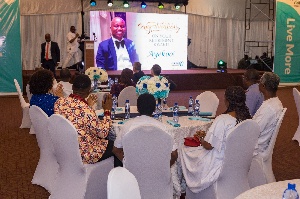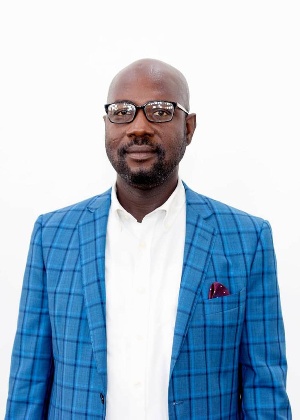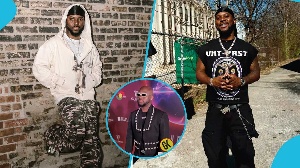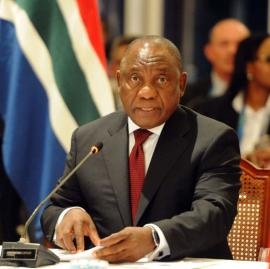- Home - News
- Elections 2024
- News Archive
- Crime & Punishment
- Politics
- Regional
- Editorial
- Health
- Ghanaians Abroad
- Tabloid
- Africa
- Religion
- Photo Archives
- Press Release
Politics of Friday, 23 May 2025
Source: www.ghanawebbers.com
A Legacy of Excellence: Transformational journey of Kwaku Yeboah-Asuamah at miLife Insurance
In December 2015, Ghana’s insurance industry saw a significant change. LeapFrog Investments, a global private equity firm, acquired miLife Insurance. Their goal was to bring innovation and expertise to the company. They aimed for both financial success and social impact.
In January 2016, Kwaku Yeboah-Asuamah became the new CEO. He had over two decades of experience in insurance and finance. Kwaku brought vision, discipline, and heart to his role.
Over the next nine years, remarkable changes took place at miLife. Under Kwaku's leadership, the company grew rapidly and sustainably. In 2016, miLife’s annual premium income was under GHS 20 million. By the end of 2024, it reached GHS 406 million—a growth of 21 times.
During this time, miLife rebranded to better reflect its mission and values. Kwaku led a review of products to meet everyday needs of Ghanaians. The company expanded distribution channels through partnerships with mobile operators and community groups.
This focus on sales productivity resulted in significant growth in new business. Policies increased from 12,138 in 2016 to 375,535 in 2024.
Working with LeapFrog, miLife launched several initiatives for improvement. These included rebranding efforts and enhancing customer service and employee development. Profitability also improved significantly during this period.
From 2016 to 2024, miLife recorded an underwriting profit of GHS 81 million. Operating profits reached GHS 97 million as well. Assets Under Management grew from modest beginnings to GHS 459 million by December 2024.
These achievements helped miLife become a top-five life insurer in Ghana. The company narrowed the premium gap with competitors significantly.
Kwaku embraced technology as a tool for inclusion and efficiency. MiLife implemented systems like Adepa for sales automation and Mankrado for claims processing. They also introduced Ohemaa—a web portal and AI chatbot for customer support.
These innovations reduced errors and sped up policy issuance while enhancing engagement with customers. Technology became integral to miLife’s culture under Kwaku's leadership.
Kwaku prioritized customer connection from day one at miLife. He frequently visited clients across Ghana to listen to their stories directly. He believed that “insurance is only as valuable as it is understood.”
This belief shaped miLife’s customer education strategy through various outreach efforts. Community forums and local language radio shows helped demystify insurance for many people.
Kwaku fostered a strong organizational culture focused on employee engagement and satisfaction. He viewed employees as the company's greatest asset and acted accordingly.
Under his leadership, miLife's culture entropy scores improved significantly from 9% in 2019 to just 5% in 2022—indicating high employee engagement.
Today, miLife serves over 1.3 million Ghanaians effectively through its diverse product offerings including funeral plans and education savings plans.
In just one year (2024), the company paid out GHS184 million in claims when families needed help most.
Kwaku also emphasized corporate social responsibility during his tenure at miLife.
The company supported child immunization programs in local communities since its inception.
Since then, they have donated school supplies to over650 schools nationwide.
As Kwaku Yeboah-Asuamah prepares to step down in May2025 , he leaves behind a stronger , more respected ,and human-centered organization .
He has transformed not onlymi Life but also made lasting contributionstoGhana’s insurance industry .











